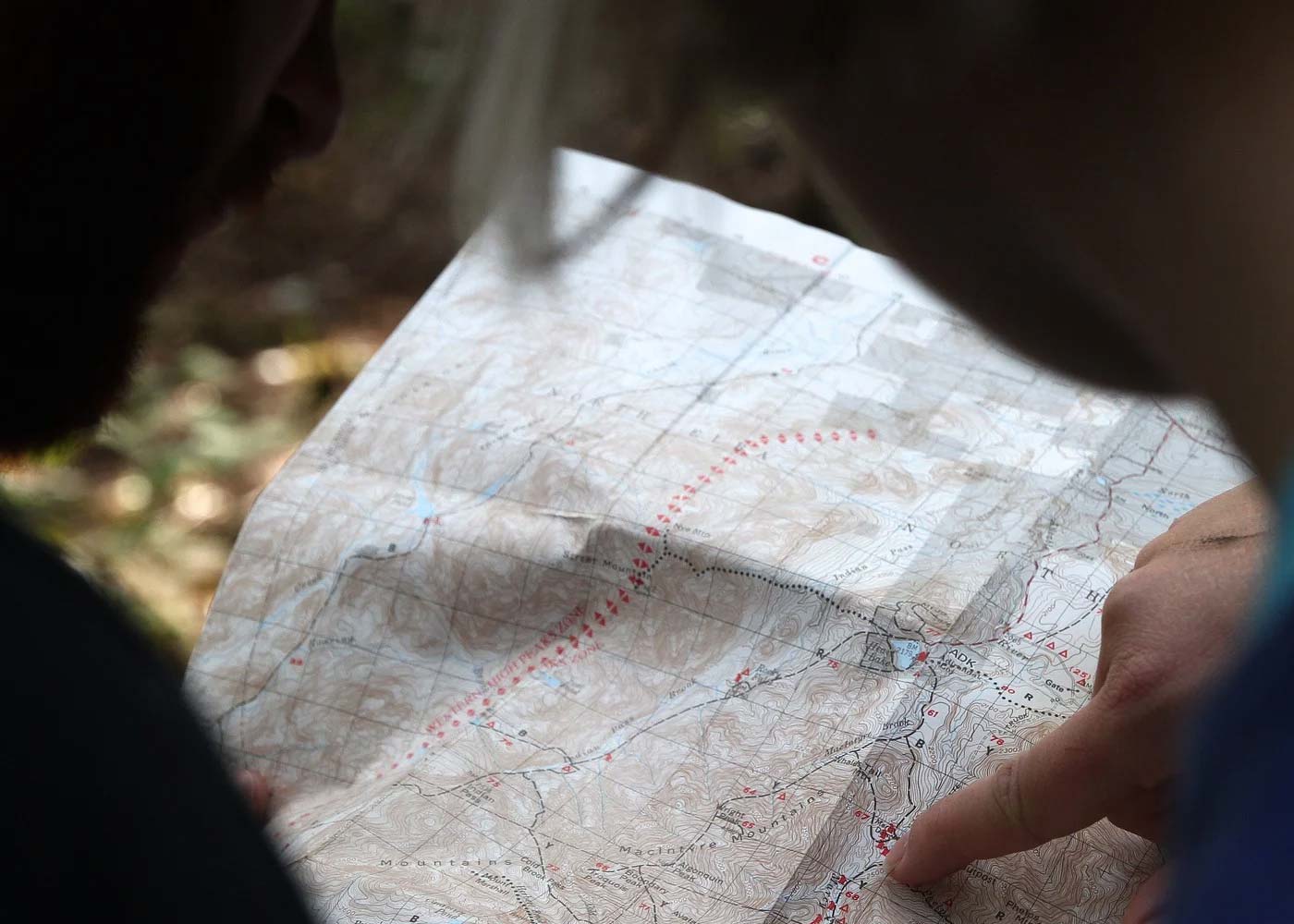Location scouting is a crucial part of making movies, running ads and even organizing events. It entails locating and assessing potential sites that satisfy the projects unique criteria and vision. A site scout is essential to this process since they make sure that the venues picked not only fit the artistic vision but also the logistical requirements. With reference to how scouting has been done at Film District Dubai, we will go into the realm of site scouting and examine its goal, method and numerous factors.
Location Scouting
The practice of looking for and evaluating possible shooting or event venues is known as location scouting. It entails traveling to several locations, evaluating their desirability, and taking into account aspects like aesthetics, logistics, accessibility and legal requirements. Finding places that support the project's vision, satisfy functional requirements, and offer an eye-catching backdrop are the main objectives.
The Importance of Location Scouting
The atmosphere is crucial when it comes to visual storytelling. The correct setting may strengthen the narrative, arouse feelings, and make the story come to life. The basis for creating appealing pictures is location reconnaissance. To find the ideal surroundings for a project, extensive investigation, rigorous evaluation, and excellent communication are required. Without thorough location scouting, the final product could not live up to expectations, which would reduce the production's impact and quality.
What a Location Scout Does
A person or group charged with locating and assessing possible places is known as a location scout. They collaborate closely with producers, directors, and production designers to comprehend the needs of the film and convert those needs into appropriate surroundings. In order to work effectively with place owners and authorities, location scouts must have a great eye for detail, a thorough awareness of aesthetics, and excellent negotiating and communication skills.
Process of Location Scouting
The process of a successful location scouting is:
Preparing for Location Scouting
It's important to lay a strong foundation before starting the actual location research process. This include determining the precise needs for the project, defining a budget, and creating a reasonable timetable. To make sure that the places chosen are in line with the overall creative direction, it is crucial to comprehend the project's vision, theme, and logistical requirements.

Investigating Potential Sites
One of the most important steps in the site scouting process is researching possible places. To identify sites that meet the specified criteria, it takes searching via a variety of resources, including internet databases, libraries, location and local connections. To help with the decision-making process, comprehensive information on each place should be acquired. This material should include images, any permits needed, and any unique restrictions.
Considerations for Location Scouting
The following factors must be considered when looking for the perfect location:
Accessibility and Logistics
Accessibility and logistics are important considerations when choosing a venue. A seamless manufacturing process depends on taking into account transit alternatives, parking availability, and accessibility to other important facilities. Maintaining efficiency and reducing logistical obstacles require evaluating how readily the personnel, equipment, and skills can get to the area.
Availability of Amenities
The viability of a location for a project can be significantly impacted by the facilities available there. A pleasant working atmosphere must be ensured, thus it's crucial to check for power sources, restrooms, and enough space for equipment setup. Additionally, the success of the production and general convenience might be influenced by the accessibility of adjacent lodging and catering options.
Permits and Legal Considerations
When investigating potential places, legal issues are of the highest significance. Permits for filming, location agreements, and insurance coverage may all be required, depending on the project's size and specifications. To prevent any hiccups or legal issues during production, it is crucial to get familiar with local laws, secure the necessary approvals, and ensure compliance with legal requirements.
Analyzing Locations Aesthetics
These are ways to analyze your locations aesthetics:
Getting the Visual Appeal
A key component of site scouting is evaluating an area's aesthetic attractiveness. It entails evaluating all aspects of visual appeal, such as the scenery, buildings, and atmosphere in general. To produce an engaging visual narrative, it is crucial to assess if the setting fits the required visual aesthetic and successfully conveys the desired mood or atmosphere.
Taking Lighting Conditions into Account
The aesthetic result of a project can be greatly influenced by the lighting situation. Location scouts must take into account the amount of available natural light, the sun's direction, and any potential obstacles that could interfere with the planned lighting arrangement. The appropriateness of a location for producing the desired cinematic look may be determined by considering how the place interacts with light throughout the day.
Evaluating the Background and Surroundings
A locations surroundings and background can give the images more depth and perspective. It is essential to determine whether the setting fits the intended story and to make sure the surroundings support the telling. Additionally, taking into account elements like background noise, local landmarks or potential distractions might improve the productions quality.

Assessing the Architecture and Design
The visual composition can be significantly influenced by a locations architectural structure and style. Whether it is a modern building, a historical structure or a special site it is critical to comprehend how the architecture of the area fits with the projects specifications. To guarantee a seamless integration between the setting and the storytelling it is important to consider the available space, the flexibility of the set design and the possibilities for inventive camera angles.
Dealing with Possible Challenges
Possible challenges you are likely to face in your site are as follows:
Weather Conditions
The weather might provide difficulties during production since it is frequently unexpected. When assessing probable locations, location scouts must take seasonal fluctuations, climatic trends, and weather threats into account. The health and safety of the cast and crew may be ensured by evaluating how the venue performs in various weather scenarios and having backup plans in place.
Seasonal factors to consider
Seasonal changes may have a significant influence on a location's availability and appeal. Making wise choices while location scouting requires knowledge of how different seasons effect the environment, foliage, or weather. Strategic planning is made possible, ensuring that the sites picked match the required seasonal ambiance or theme components.
Outdoor vs. Indoor Locations
Another aspect of site scouting is deciding between indoor and outdoor venues. Each has strengths and weaknesses. Outdoor settings offer natural lighting and a realistic backdrop, although they may be limited by the weather. Although indoor sites give more environmental control, they could necessitate more elaborate production designs and lighting sets. The ideal balance between the two may be found by weighing the project's requirements against the aesthetic vision.
Noise and Distractions
The production process and the caliber of the finished product can both be severely impacted by noise pollution and distractions. Location scouts should be aware of potential sources of noise that might disrupt audio recording, such as busy streets, construction sites, or neighboring activities. To guarantee a smooth and uninterrupted production it is crucial to evaluate the degree of noise during filming.
Collaboration and Communication
The tips for getting the best communication and collaboration are as follows:
Collaborating with Authorities and Location Owners
The key to efficient location scouting is working well with the owners and authorities of the target area. Throughout the process it is essential to maintain open communication and solid partnerships. Location scouts are responsible for negotiating contracts, obtaining required licenses, and making sure that everyone involved is on the same page about expectations, logistics, and obligations. Forging great connections and upcoming cooperation requires abiding by the property owners' restrictions and acting professionally.
Negotiating Contracts and Agreements
Location scouting involves a significant amount of contract and agreement negotiation. Location scouts are responsible for making sure that all legal considerations, such as location usage rights, liability protection, and remuneration arrangements, are addressed and documented in a suitable manner. To prevent misunderstandings or legal problems, it is crucial to have open and honest communication about financial arrangements, insurance requirements, and any special needs or limits.
Maintaining Effective Communication
It is crucial to keep lines of communication open and productive during the whole location scouting process. Location scouts are required to give the production team regular updates, offer in-depth information and analysis on possible sites, and swiftly respond to any issues or queries. A simplified and effective scouting process is aided by rapid information exchange and collaborative decision-making.

Tools a Production Company will Need for location scouting
Location scouting, when filmmakers look for appropriate places to bring their story to life, is an essential step in the filmmaking process. Finding the ideal location may greatly improve the entire cinematic experience by providing the correct mood and supporting the story. There are several tools available to help filmmakers with their location scouting efforts in the modern digital age. Let's look at some of the best resources for locating the best shooting sites.
Online tools for location scouting
The online tools used for scouting are as follows:
Google Earth
Filmmakers may digitally explore locales from any part of the world thanks to Google Earth, a very potent tool. A bird's-eye perspective of possible filming locations may be obtained by filmmakers using Google Earth's comprehensive satellite photography and 3D mapping. It offers a hands-on experience that lets users move about and zoom in on particular regions to judge their appropriateness.
Location scouting websites
For site scouting, there are specialized web portals created. A huge database of pre-scouted places, including private houses, public areas, and distinctive landmarks, is available on these websites. Locations may be found by filmmakers using a variety of characteristics, including geography, scenery, and mood. These websites frequently include comprehensive information, such as images, descriptions, and contact information, making it simpler to select and get in touch with venue owners.
Virtual location scouting tools
In order to give filmmakers immersive experiences, virtual site scouting tools make use of augmented reality (AR) and virtual reality (VR) technology. With the use of these technologies, filmmakers may digitally scout out possible filming sites, getting a genuine sense of the setting and assisting them in making decisions. By limiting the alternatives before physically visiting the venues, this strategy saves time and resources.
Photography tools for location scouting
There are photography tools that can be used for location scouting. They are:
Popular social networking site Pinterest is a great place to get ideas for travel destinations. In order to preserve and organize photographs of possible filming sites, filmmakers can build private boards. Filmmakers may successfully convey their vision to the production crew and get ideas for the overall look of the movie by compiling a collection of images.
Another popular network like Instagram is a good resource for finding potential shooting locations. Filmmakers might hunt for hashtags that are associated with the areas or characteristics they want to shoot in. They may peruse user-shared images and videos to learn more about the ambiance, lighting, and general aesthetic appeal of possible filming sites.
Google Maps
When exploring locations, filmmakers can't do without Google Maps. It provides thorough maps, satellite images, and Street View so that moviemakers may visually explore possible filming sites. They can scan the surroundings, gauge the topography, and learn about the amenities close by with only a few clicks. Before seeing the actual place, Google Maps offers a sense of familiarity that aids in letting filmmakers visualize how their scenes will come to life.
Waze
Waze is a navigation app that offers more features than standard maps. It offers alternate routes, real-time traffic data, and predicted journey times. During site scouting, filmmakers may utilize Waze to plan their routes, assuring quick and effective transit between prospective filming locations. The app's community-driven design also offers helpful tips from other users, assisting filmmakers in avoiding construction zones, bottlenecks, and other potential barriers to progress in their scouting.
Weather Forecasting Tools
There is a forecasting tools available to help you in finding the perfect arena. It is:
Weather Websites and Apps
In filmmaking, the weather is important because it affects the atmosphere and overall aesthetics of a scene. In-depth predictions for temperature, precipitation, wind speed, and other factors are available on weather websites and mobile applications. With the aid of these technologies, filmmakers can strategically organize their shoots and guarantee that the ideal weather conditions are captured to enhance their narrative. Knowing the weather may have a big impact on producing aesthetically appealing settings, whether it's a sunny day, a dramatic storm, or a snowy terrain.
Research and Reference Tools
There are research and reference tools designed to help you find the perfect arena for your shoot. They are:
IMDb
The Internet Movie Database, or IMDb, is a goldmine of knowledge for moviemakers. It offers thorough information about films, television series, and the industry's key players. Filmmakers can use IMDb to study filming locations that have been utilized in related productions, learning about the aesthetic appeal and practical considerations of particular locales. IMDb further enables users to interact with experts and location managers that have expertise working in particular areas or nations, offering helpful comments and assistance.
Location Libraries and Databases
Location databases and libraries are useful tools for filmmakers looking for uncommon and obscure filming locations. These repositories contain a huge collection of previously explored places, such as homes, parks, buildings from the past, and more. Filmmakers may access thorough information, including images, descriptions, and availability, and search for locations depending on their unique needs. Utilizing these tools can help you save time and effort, particularly when looking for unique or challenging locations.
Collaborative Tools for Location Scouting
These are collaborative tools that can help you in your site hunt:
Trello
The site scouting process may be streamlined with Trello, a flexible project management platform. Filmmakers may design boards for various projects and work in real-time with other team members. They are able to make task lists, add comments and attachments, establish deadlines, and monitor development. Trello makes ensuring everyone is on the same page, promoting effective collaboration and communication during site scouting.
Google Drive
Location scouting projects might benefit from the productivity features that Google Drive has to offer, such as Docs, Sheets, and Slides. To monitor prospective locations, make comments, and preserve pertinent materials, filmmakers can create and share documents. The whole crew may contribute their thoughts, ideas, and research by working together on Google Drive, encouraging a team-wide search for the ideal filming sites.
Virtual Reality (VR) Tools
These are VR tools designed to give assistance in your site hunt:
360 Degree Cameras
Filmmakers are now able to capture the spirit of possible filming sites in a totally immersive way thanks to 360-degree cameras. These cameras enable the production of panoramic video that encompasses the whole scene. Filmmakers may go back and watch the film afterwards, immersing themselves in the action and feeling as though they were there in person. With the use of this technology, decision-makers may analyze numerous perspectives, lighting setups, and compositions to help with visual narrative and camera placement. Filmmakers may establish a unified vision for their movie by sharing virtual tours of locales with the rest of the team. This will thrill and stimulate innovation.
VR Headsets
Location scouting has never been easier thanks to virtual reality (VR) headsets. Filmmakers may travel to possible filming sites using VR technology without ever leaving the comfort of their studio or office. They may explore a three-dimensional, realistic picture of the environment with depth, size, and spatial awareness by donning a VR headset. Filmmakers may assess a location's potential with a greater sense of presence thanks to this immersive experience. They are able to assess the environment, plan camera motions, and reach important conclusions regarding framing and composition. By enabling team members from various places to participate in virtual scouting sessions and offer feedback in real time, VR headsets can enhance distant cooperation. In addition to saving time and money, doing this encourages a stronger degree of commitment and emotional attachment to the project.
Qualifications and skills required to be a Location scout
Working as a site scout doesn't require any formal degree or training. However, enrolling in film school might aid in developing the professional network necessary for landing your first jobs in the field. It's not necessary to have a degree in photography or even filmmaking, although they can help you develop a keen eye for detail. (Remember that the annual cost of attending film school might be approximately $22,000.)
Find out as much information as you can outside of the classroom to develop a thorough understanding of the filmmaking process, cultural sensitivity, and practical knowledge of local government.
The ability to travel and even to explore your own city is crucial if you want to have a collection of distinctive, cinematic locales. The task is "detective work," according to Kostick, who added that you will be constantly trying to locate a unique spot, one that no one has ever seen before. However, the place must also function technically. Additionally, it must win over a number of stakeholders, including the customer, the production designer, the art team, and foremost, the director.
According to Turner, the setting must be outstanding enough to warrant spending the money to bring the complete production there. You have to look for an amazing environment that has something unusual or special about it that cannot be physically duplicated.
It is also the responsibility of the location scout to arrange logistics, acquire authorization to scout a place, and secure permission to film there. Learn about the contracts necessary to book a venue for a shoot, especially the tiny print.

Skills Used by Location Scouts
Location scouts employ a range of abilities to properly carry out their duties. The abilities that directors and studios seek out include:
1. Effective oral and written communication, including taking notes and actively listening.
3. Interpersonal abilities to establish trusting bonds with other location scouts, officials, film commissioners, and locals.
5. Geographical expertise to choose sites well.
6. The ability to navigate, including the use of a GPS system and map reading.
7. The ability to drive when traveling.
8. Knowledge in photography, including how to frame photos and use lighting.
9. Knowledge of contracts, liability difficulties, and insurance.
10. Problem solving to locate appropriate sites within project budgets.
11. Sketching, photography, and videography are used to document the areas seen during scouting expeditions.
12. Cultural sensitivity, sometimes involving the ability to talk in many languages.
13. Multitasking to manage several site agreements concurrently.







